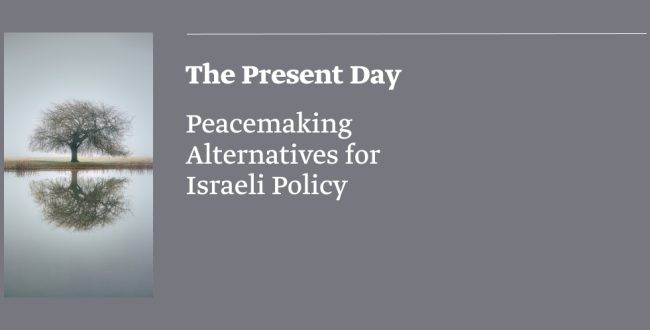The summer 2019 issue of the AIS-affiliated journal Israel Studies, titled ‘Word Crimes: Reclaiming the Language of the Israeli-Palestinian Conflict’ comprises of a set of polemic political arguments against human rights advocates, civil society actors and academic scholars who are critical of Israeli policies. Consisting of 18 short essays it reads like an extended op-ed in a far-right newspaper rather than an academic publication.
With many unsourced assertions and little attempt to weigh opposing arguments or to contextualize, its authors make misleading factual claims, such as that there is no Israeli occupation, that there are no Palestinian refugees, that human rights activists and NGOs are an army of terrorist linked associations, and that Israeli settlement and control have in fact improved the life of the Palestinians.
As expected, the publication of the volume engendered responses from AIS members and others, calling for a new review of the issue, the resignation of IS editors and the establishment of a transparent peer review process. Some members of the IS Editorial Board resigned and some issued a strong letter of dissent. The editors of the journal rejected the criticism claiming that the framing, the choice of authors, the peer review process and the content of ‘Word Crimes’ were all rigorous and appropriate.
In the midst of the controversy, it might make sense to situate ‘Word Crimes’ within a larger and global phenomenon of anti-liberal backlash in academic publishing disguised as a matter of academic freedom. In recent years there seems to be a trend of academic journals publishing reactionary, often scientifically implausible pieces – deliberately or by ‘mistake’. The Israel Studies issue is an example of the former. But while the episodes vary so do the types and levels of responses by the relevant academic communities.
Are journals and academic societies equipped to respond to the new trend of politicizing academic publishing? What are some of the tools available for them when ‘mistakes’ quickly transform into public outrage? Could this trend signify not only a crisis but also an opportunity for academic journals to reevaluate and reinforce review procedures, reexamine ethical codes and standards of responsibility?
The following is a quick summary of three recent episodes that demonstrate different types of responses by the relevant academic community and mostly – by the journals themselves. From the most procedural to the most substantive – these examples expose different and (sometimes) positive avenues that are open for journals and editorial boards to respond to such incidents:
- Bruce Gilley’s ‘The Case for Colonialism’, was published in the Third World Quarterly in 2017. It glorified colonial rule and advocated for the recolonization of certain ex-colonies. Following complaints (a petition urging to retract the article gathered more than 10,000 signatures) and resignation of 15 members of the board – the article was withdrawn by the journal at the request of the academic editor and in agreement with the author. The publisher’s retraction statement refers to “death threats” against the editor as a reason for the retraction: “Taylor & Francis has a strong and supportive duty of care to all our academic editorial teams, and this is why we are withdrawing this essay”. The article was recently republished by the National Association of Scholars.
- Published in 2017 in the Journal of the History of International Law, John Bennett’s The Forgotten Genocide in Colonial America: Reexamining the 1622 Jamestown Massacre within the Framework of the UN Genocide Convention’, put forward the argument that English atrocities in colonizing north America could be justified as a reasonable response to violence from native Americans. The article was available online six months before anyone noticed and complained. But once it was picked up the repercussion was strong.75 international lawyers and legal historians signed a letter calling for swift removal of the article and threatening not to publish in the journal. Two members of the editorial board resigned. The journal responded with a statement: ‘publication by the JHIL does not imply any agreement or endorsement by the editors or by the academic advisory board of the opinions expressed in the article”. The editorial board, maintaining that the decision to publish the paper was a procedural mistake, reexamined and strengthened the peer review and editorial process and published new review guidelines. They studied the international ethical guide code of conduct and decided that retraction is not recommendable in this case because ‘the article doesn’t rely on hard evidence it can hardly be plainly wrong in a technical sense.’In contrast the scholarly rebuttal and refute of the argument – they claimed – is the best course. The chief editor explained this position at the Annual meeting of the European Society of International Law (ESIL) and a Committee was set up among leading journal editors to draft guidelines for dealing with editorial politics. Finally the journal held a conference on the incident titled: ‘Politics and the Histories of International Law” and is committed to publish the papers from the conference in a special issue.
- The American Historical Review (AHR) published (also in 2017) a book review by Raymond Wolters, a historian criticized as expressing white supremacy opinions. The review criticized Ansley Ericson’s book, Making the Unequal Metropolis: School Desegregation and Its Limits for not taking into consideration racial differences between black and white students and ‘saying nothing about sociobiology’. Following complaints the editor took the following steps:
- Published a note attached to the book review stating that ‘the following review is not consistent with the American Historical Association’s standards of professional scholarship’, and provided links to the complaint letters and to the newly commissioned book review.
- Commissioned and published an alternative book review: “A review concordant with those standards appears in the October 2017 issue, pp. 1251–1252”
- Published the complaint letters.
- The interim editor also published an apology taking personal responsibility. The journal, he said was not aware of the Wolters’ published views. But this – he stressed – was no excuse accounting for the mistakes:
‘… we did not investigate his [Wolters’] views even when his review was flagged for my perusal. This is entirely on me. I recall lingering over that last sentence where he mentions sociobiology, wondering whether it was appropriate. In retrospect I should have lingered longer. As well, this sentence should have prompted me to look into his recent publications, which would certainly have convinced me to pull the review. Alas, I did neither, for which I owe both Professor Erickson and our readers an apology…’
- Finally, the journal also published an editorial titled “Decolonizing the AHR” that digs deeper into the complicity of the journal and generally the discipline as part of the reason for the mistake in publication:’What has the official publication of the American Historical Association done, to rectify decades of exclusionary practice, during which women, people of color, immigrants, and colonized and indigenous people were effectively silenced as producers of scholarship and subjects of historical study?’
This, the editors stressed, requires more than a well-intentioned commitment to ‘diversity’: ‘Instead of self-congratulation for the achievements … I would prefer to acknowledge that when it comes to “decolonization,” the AHR still has a way to go … Rather than simply apologize and move on, I have come to believe that the AHR should take the risk of confronting its own potential complicity in the inability of the profession to divest itself fully of its past lack of openness to scholars and scholarship due to race, color, creed, gender, sexuality, nationality, and a host of other assigned characteristics.’
What’s at stake, the editorial concludes, is serious self-inspection and a set of concrete steps, not a hurried denial in the hope of quickly moving on:
‘I could issue stringent denials, continue to point to the inevitable exceptions (as I do above), or wallow in a mea culpa. Instead, I want to describe the initial steps the Board of Editors and I have decided upon to make the journal more responsive to the exciting new voices that are challenging the historical profession to live up to its responsibilities to a diverse society.’
These steps which were resolved by the editorial board included: expanding and diversifying of the Board, and the Review Editorial; sponsoring data collection and AHA panels to address the question of professional diversity; modification of review process and reviewers database; reaching out directly to associations to invite scholars of relevant areas (Women Historians, Native American and Indigenous Studies Association, the Association for the Study of African American Life and History, the National Association of Chicana and Chicano Studies); establishing an ad hoc committee to address questions of diversity in the AHR on a regular basis.
In light of such qualitatively different responses, Israel Studies’ quick denial of any transgression seems particularly unhelpful. Rather than successfully eliminating the criticism, the denial will most likely intensify the crisis in the AIS. We can surely expect in the near future more episodes of intentional and unintentional abuse of the cherished freedom of academic speech. In this political climate, it is important to start considering the possible paths open to academic editors, journals and academic associations as a way of response.
There is definitely more than one way to go about managing such incidents. The American Historical Review did not withdraw Wolters’ book review and yet its Board used the opportunity to reconsider deep seated discrepancies and started a review process of exclusionary practices. The Third World Quarterly retracted Gilley’s article yet did so in a mechanistic manner that could not garner the support of its academic community. The Journal of History of International Law treated the mistake as technical but also opened avenues for regulation and intellectual debate.
Whether any one particular form of response is better than the other can be debated, but one thing is clear: such incidents should be treated not simply as mishaps, but as opportunities for academic journals and associations to account for their roles and responsibilities for persisting mistakes.
Dr. Karin Loevy is the manager of the NYU School of Law JSD Program and a Visiting Scholar with the Institute for International Law and Justice (IILJ)
















